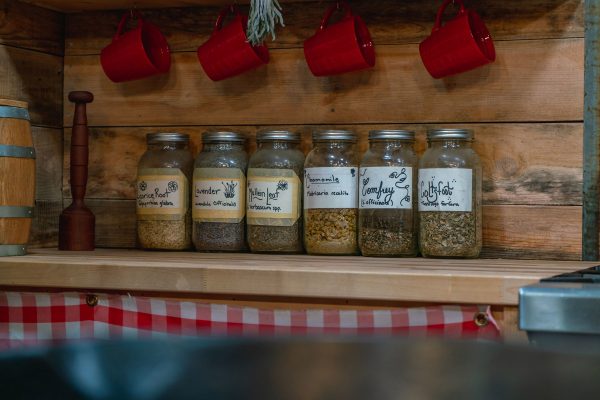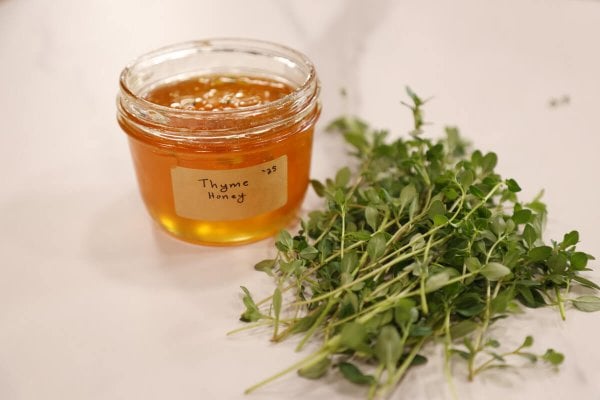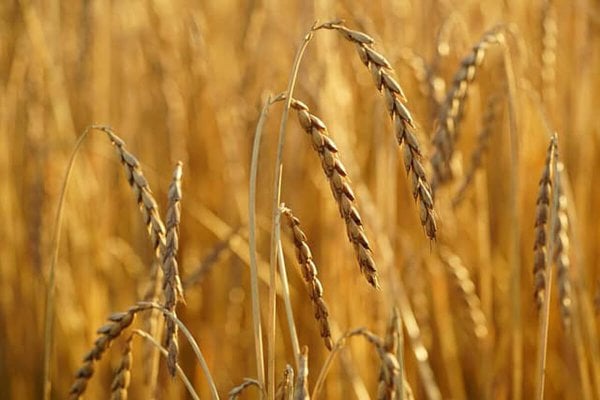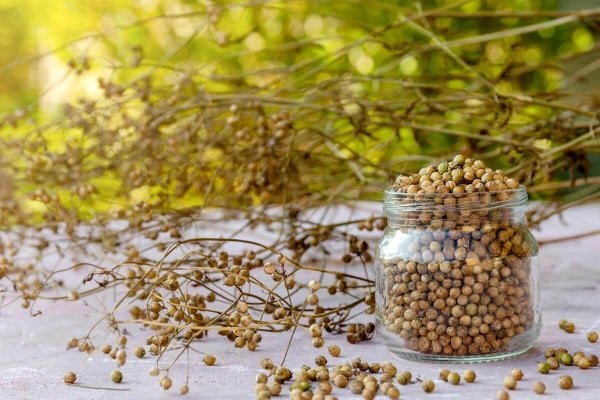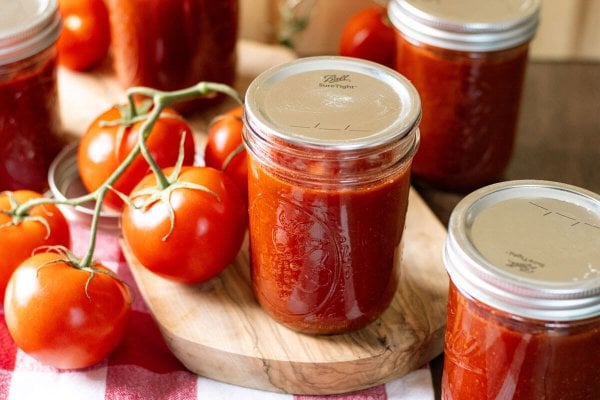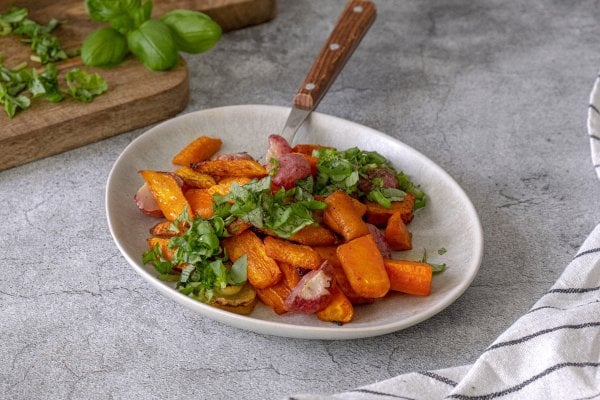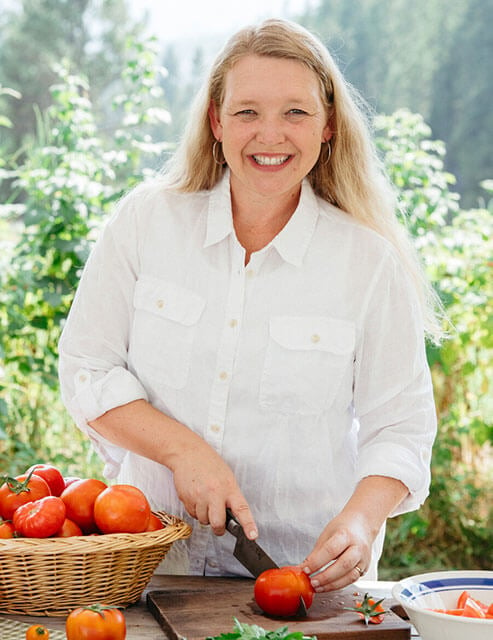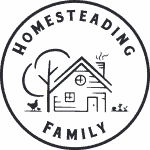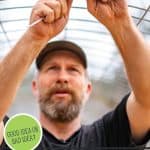

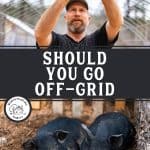
Should you go off-grid with your homestead? Maybe… or maybe not! What does going “off-grid” actually look like, and what are we doing to get there? Here are a few key concepts to consider before going off-grid, or deciding whether or not you should go off-grid for your homestead.
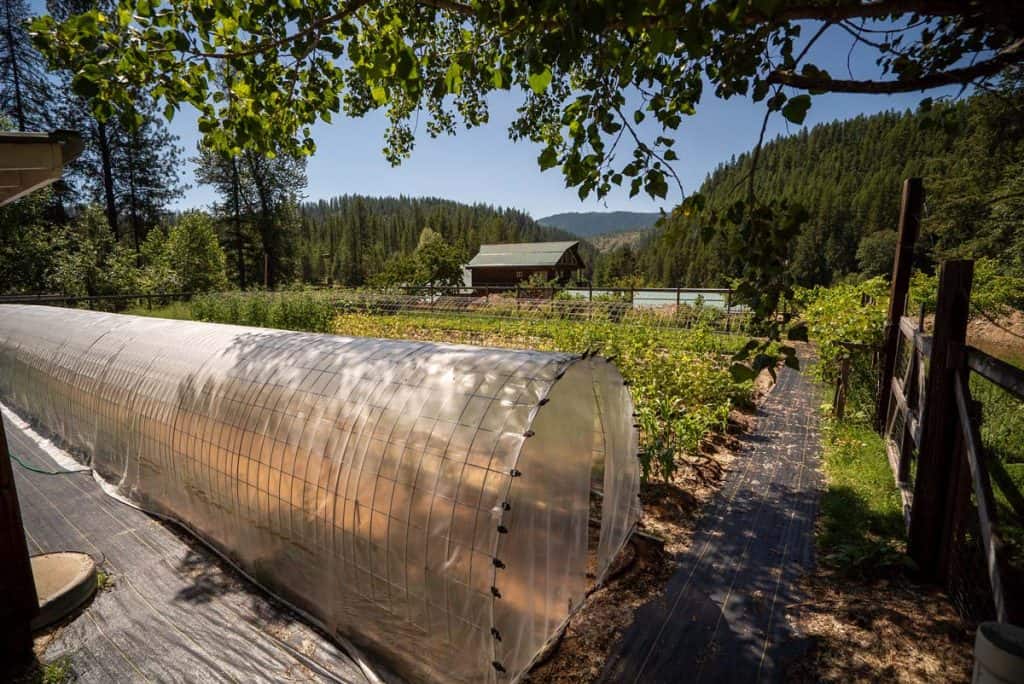
Over the years we’ve heard from a lot of people who wanted to homestead so they jumped right in with both feet. They bought the off-grid property, built an off-grid home, or maybe even moved into an existing off-grid homestead.
Too often this has left these people taking larger risks than they could afford and making huge mistakes in regards to their family because they hadn’t fully thought through what going “off-grid” really means.
We’ve been asked before if we live off-grid. But we’re reluctant to answer because when people refer to “off-grid” they’re generally referring to the power grid, whereas we see “off-grid” in multiple layers.
No, we aren’t currently living off the power grid, and we’ll expound on that more below. But we do have systems in place that will help us with short and long-term power outages and we’re also definitely prepared for emergencies or unexpected situations.
We want to clarify a misconception that’s floating around the internet… you can absolutely be a homesteader and NOT live “off-grid”! Living off-grid is not a prerequisite to living a homesteading life.
Homesteading is a state of mind for people who want to be producers instead of consumers and they actively look for ways to produce.
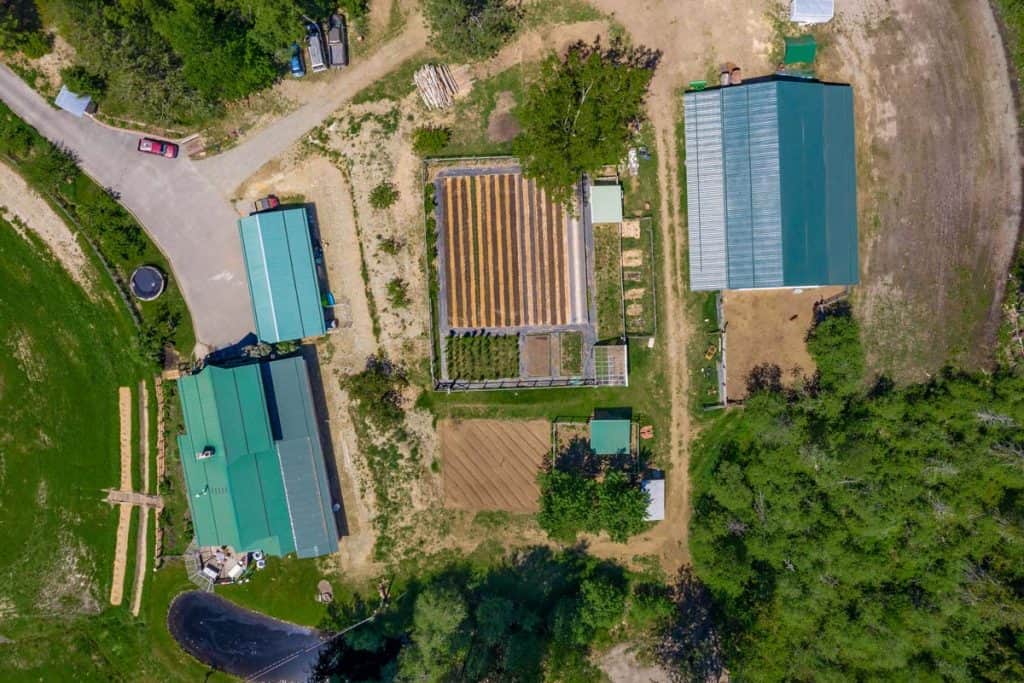
What is “The Grid”
Let’s take a deeper look at what “the grid” is, and what it means to live on or off the grid, including whether anyone truly lives 100% “off-grid” anymore.
There is a modern concept in the way we use the term “being off-grid” that refers to the power grid. But when you start thinking about the things that connect us to society and the systems that we rely on it’s really a lot bigger than just the power grid.
A grid is any system that provides us a resource or anything of value that’s systemically created that we rely on outside of ourselves. A few examples are:
- Electricity grid – power (for lights, heat, water, cooking, food storage, computer/electronics, etc.)
- Water grid – plumbing, clean drinking water
- Medical grid – medical care, medication
- Financial grid – banking, credit cards, purchasing/selling
- Education grid – public school, universities
- Food system grid – grocery store, farmer’s market, big ag, etc.
- Informational grid – cell phones, landline phones, the internet, etc.
Can you think of any others?
Before going off-grid (referring to the electricity grid) our family worked toward getting off the other grids first.
For us, being able to produce our own food was very important to us. We wanted to be able to feed our family healthy food not only for economical and self-sufficiency reasons, but for better health for us and our children.
We knew we didn’t want our children to go through the public school system, so we built the infrastructure and gathered the materials/skills needed to homeschool them ourselves. These homeschool tips will help get you started.
We found a piece of property that’s allowing us to get closer to removing ourselves from the water grid.
We’re learning the skills to grow our own medicinal herbs and make safe and effective home remedies for our family when illnesses or injuries happen.
We wanted to build the skills to be able to get off the other grids BEFORE working toward eliminating the power grid because we feel the power grid affects all these other grids, but the other grids don’t necessarily affect the power grid.
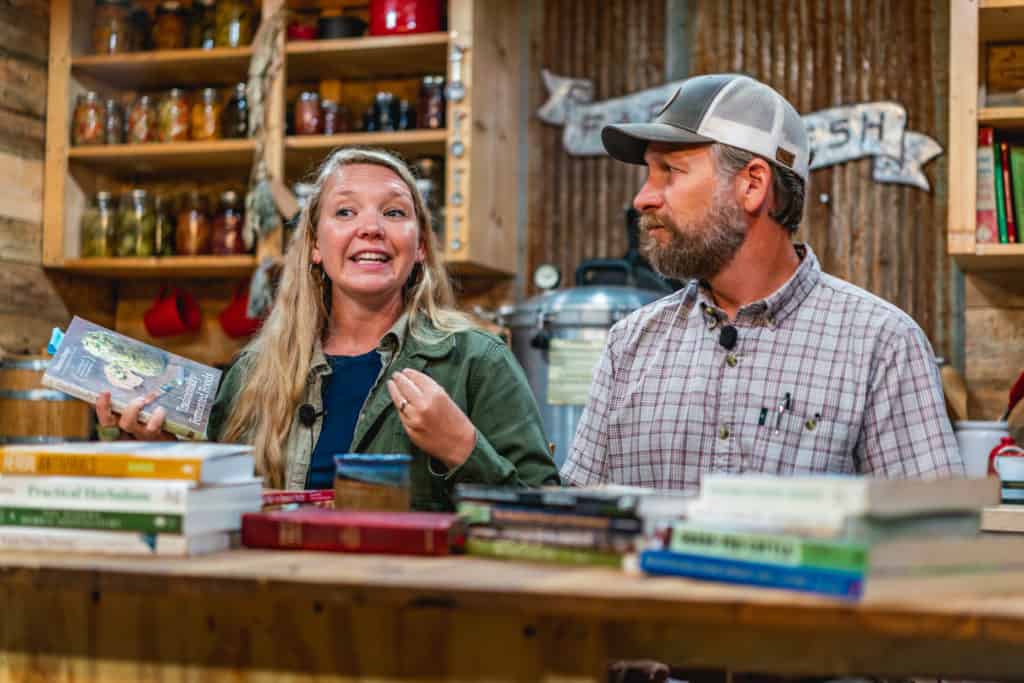
How to Go Off-Grid
In order to go off any of the grids listed above, you’re going to need:
- Education & skills on how to go off-grid
- Space and infrastructures to go off-grid
- Resources to make all these things happen
You then have to be able to put them all together to successfully go off-grid and stay off-grid.
What’s Needed to Go Off-Grid
Whenever you’re looking to go “off-grid”, no matter what grid you’re talking about, you have to first develop education about that grid. It’s going to take time to put in the infrastructure and learn the skills in order to get off and stay off any grid successfully.
To get off the food system grid, we needed to have the knowledge of raising animals and the right gardening space with improved soil and fencing. It takes barns, chicken coops, pastures and more fencing, etc.
It was important for us to put the financial resources into these skills first, before getting off any of the other grids.
Whenever we think about going off-grid, no matter which one, we oftentimes try to replicate what we knew or what we experienced while on the grid.
It’s so important to first step back and ask ourselves if that system is serving us well. Many times we found the systems weren’t serving us in the way we wanted, which is why we wanted to get off the grid in the first place.
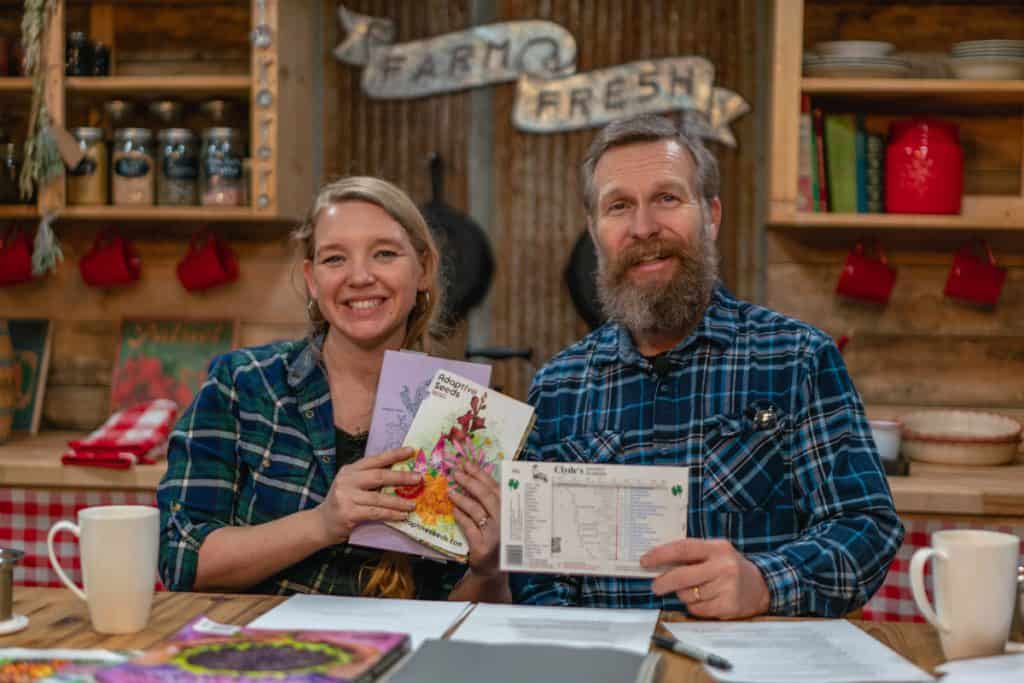
What Are We Doing to Go “Off-Grid”?
We’re currently working toward getting off the grid of many of those listed above, but we’re not fully there yet because we’re still in the process of first educating ourselves, building skills, gathering resources, and setting in place the infrastructure needed.
- We homeschool our children and have distanced ourselves from the education grid. We see many benefits in educating our children through homesteading.
- We have our own water source and ways to power our well to distance ourselves from the water grid.
- We’re growing our own food and raising our own animals to distance ourselves from the food grid.
- We’re even growing our own medicine to distance ourselves from the medical grid.
The further you can get away from the other grids (besides the power grid), the more you’ll realize you’re less dependent on the power grid in general.
If the power grid goes out, it’s going to affect the education grid, the food grid, the water grid, the medical grid, etc. But if you’ve already distanced yourself from the rest of these grids, then the impact of the power grid going out will be less severe.
When we’re ready to actually step off-grid, we’ll actually have much less to power in general.
We’ll keep you posted on how we’re continuing this process of going “off-grid”, and we’d love to hear from you! Hop over to the YouTube video and let us know in the comments!











